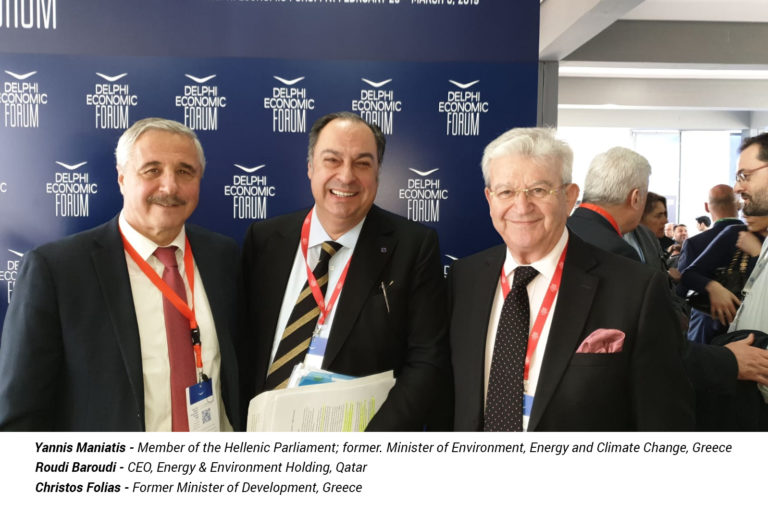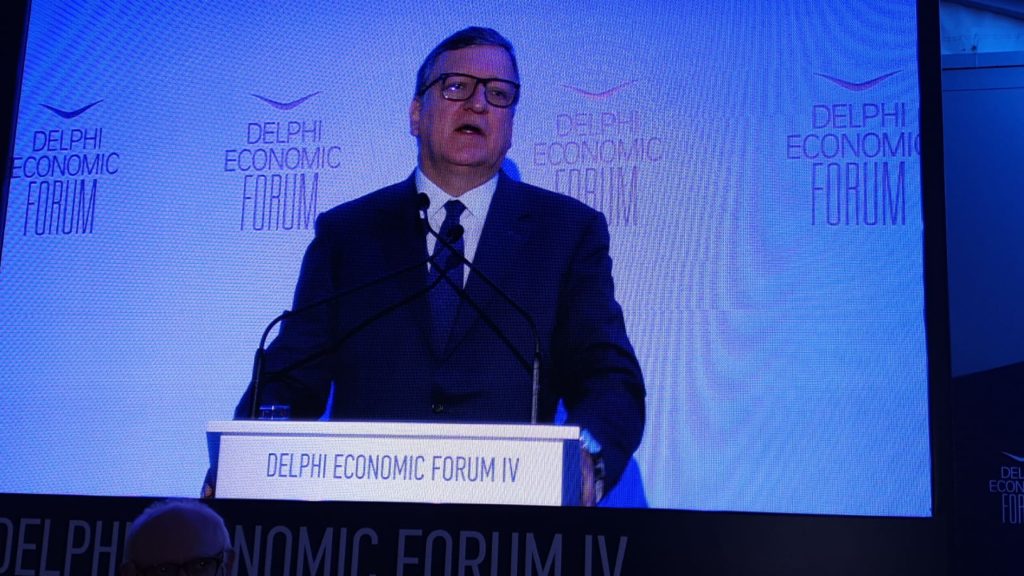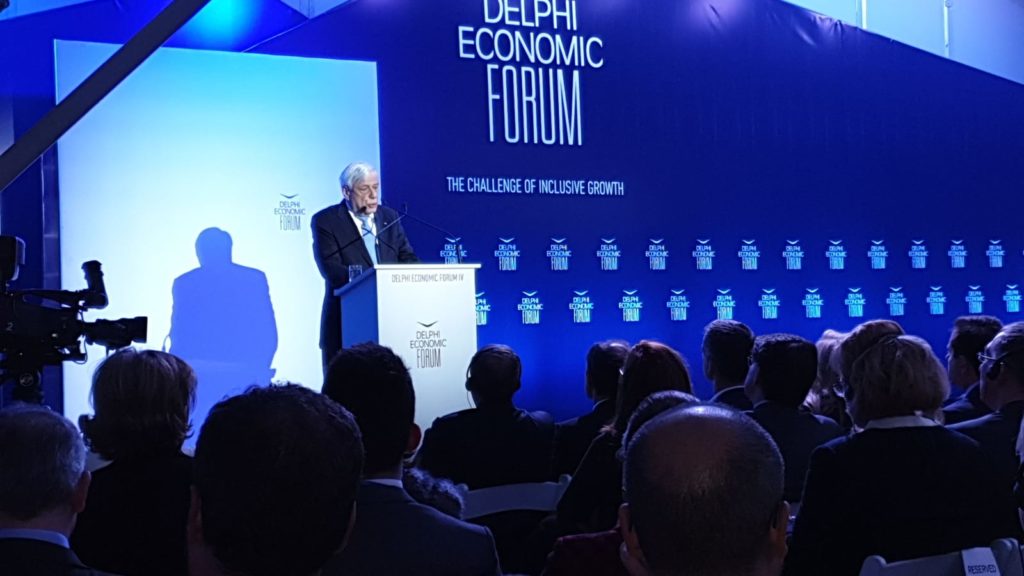Energy exports to fuel Euro-Med revival Expert says. Greece should play a lead role


DELPHI, Greece: Oil and gas deposits under the Mediterranean could restore momentum to the European Union in general and its Euro-Med cooperation project in particular, an industry veteran told a conference in Athens on Saturday.
“Many of the problems facing the EU today stem from a failure to ensure that political and security partnerships between governments and militaries would come part and parcel with direct benefits for every-day citizens from all walks of life,” Roudi Baroudi, CEO of Doha-based Environment and Energy Holding, told the second day of the Delphi Economic Conference. “The consequences of this failure have been particularly troublesome for several key members of the Euro-Med family.”
As a cornerstone of the region and a victim of the global economic meltdown, “no country has a more important role to play in this process than Greece does,” added Baroudi, who has worked in several parts of the energy sector for more than 40 years.
“The real tragedies are the personal ones involving jobs lost, families scattered, and dignity under assault,” he told an audience of high-profile figures from the private and public sectors. “These are the indicators that have to change if we are to make good on the European dream, and if we are serious about inclusiveness, the Euro-Med region is actually a great place to start.”

Baroudi, who has advised governments and companies on three continents and helped draft significant parts of European Union energy policy, also seconded remarks by Greek President Prokopios Pavlopoulos, who reminded guests at Thursday’s opening ceremony that technological advance has often come at a heavy price in terms of jobs. Accordingly, Pavlopoulos argued, greater effort had to be made to find ways for technology and its applications to offer more human benefits alongside usual pluses like cost reduction and efficiency.
“Human civilizations have always struggled with how to balance these factors, and a similar approach must apply to oil and gas development” Baroudi warned, but “today the energy industry is better-equipped than ever” to achieve sustainable development while minimizing environmental impacts.
Referring to the massive gas fields discovered in the Mediterranean in recent years, he said the resulting revenues and savings could be decisive for several countries. “We also have global standards, including the recommendations of the COP 21 and COP 24 climate summits,” he noted, “and the governments in question just need to be muscular about implementing and enforcing these rules. Greece’s role will no doubt include continued leadership on this score, too.”
“If all of the countries involved agree to be bound by the United Nations Charter and other international laws and regulations,” Baroudi predicted, “the tools are available to carve out a happier future for all of our peoples [and] … so are the resources.”